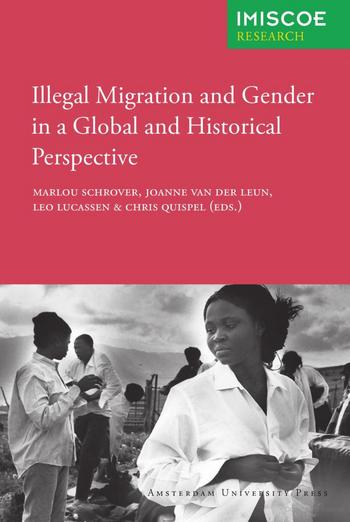Publications
Illegal Migration and Gender in a Global and Historical Perspective

- Category: IMISCOE Research Series
- Edited by : Chis Quispel, Leo Lucassen, Joanne van der Leun, Marlou Schrover
- Publisher: AUP
- Pages: 196
- ISBN: 9789048520695
- Library: IMISCOE Research Series
- Year: 2008
-
download:
Review
This incisive volume combines two important issues in contemporary debates over migration: gender and illegal migration. The authors reconsider migration scholarship through the lens of gender in order to investigate definitions of citizenship and the differences in mechanisms of inclusion and exclusion for men and women. Additionally, through applying an interdisciplinary and comparative historical framework that spans the nineteenth and twentieth centuries, the volume also produces a comprehensive account of illegal migration in nations and regions such as the United States, the Middle East, Germany, the Netherlands, Great Britain, Mexico, Malaysia, Pakistan, and the horn of Africa.
Contents
1 Introduction: Illegal migration and gender in a global and historical perspective
Marlou Schrover, Joanne van der Leun, Leo Lucassen and Chris Quispel
2 Tracing back ‘illegal aliens’ in the Netherlands, 1850-1940
Corrie van Eijl
3 Policing foreign men and women: Gendered patterns of expulsion and migration control in Germany, 1880-1914
Christiane Reinecke
4 Gendered borders: The case of ‘illegal’ migration from Iraq, the Horn of Africa and the former Soviet Union to the Netherlands
Ilse van Liempt
5 Old and new labour migration to Malaysia: From colonial times to the present
Blanca Garcés-Mascareñas
6 The romantic appeal of illegal migration: Gender, masculinity and human smuggling from Pakistan
Ali Nobil Ahmad
7 Migrant domestic workers in the Middle East
Annelies Moors and Marina de Regt
8 Illegal migration, gender and health care: Perspectives from Germany and the United States
Heide Castañeda

